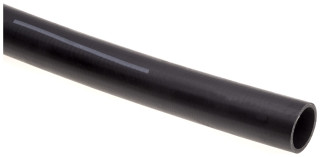I'm doing some r&r work on a fuel filler neck that is mostly steel until the last 6 inches where it connects to my (plastic) fuel tank. This last part is about 1 or 1.5" diameter (about the same size as a rad hose) but the steel line for most of the neck is about an inch diameter. There is a smaller I guess vent line that runs along side this main filler line. Both of these lines are super crusty rusted, the vent line is actually gone in a few places (yes I have engine code for this). So I'm going to be cutting back the rusted parts and replacing with generic rubber line.
My primary question here is - is there _really_ any difference when it comes to gasoline compatibility with these hoses that are sold by the foot at your local parts counter? If you ask for heater hose or rad hose or fuel-line hose, are you getting a different compound for these things or are they they the same material, maybe some have internal reinforcement / mesh for high pressure? What I need here is obviously low / no pressure but don't want the gas to melt it in a few weeks / months etc.
Comments?
My primary question here is - is there _really_ any difference when it comes to gasoline compatibility with these hoses that are sold by the foot at your local parts counter? If you ask for heater hose or rad hose or fuel-line hose, are you getting a different compound for these things or are they they the same material, maybe some have internal reinforcement / mesh for high pressure? What I need here is obviously low / no pressure but don't want the gas to melt it in a few weeks / months etc.
Comments?


